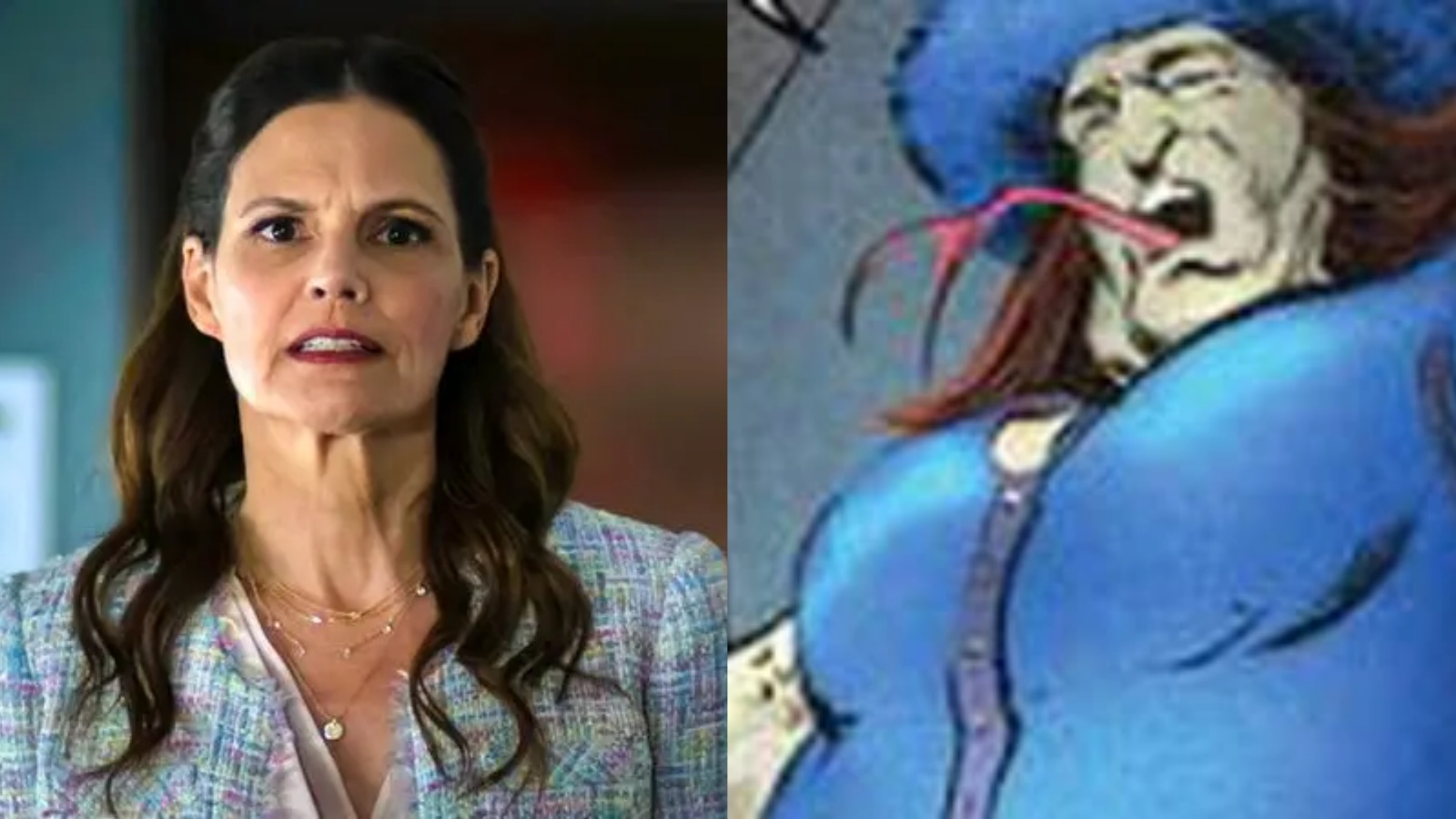Percy Jackson & the Olympians features a formidable foe, who goes by the name of Echidna. But who is she in Greek mythology?
Percy Jackson & The Olympians is finally on Disney+, much to the excitement of fans both old and new. The series follows this synopsis: “12-year-old modern demigod, Percy Jackson, is coming to terms with his newfound divine powers when the sky god, Zeus, accuses him of stealing his master lightning bolt; with his friend’s help, Percy must restore order to Olympus.”
The series is based on the beloved set of books by Rick Riordan, which modernized Greek myths for a whole new audience. And this manifests in the appearances of Medusa, the Chimera, and of course, Echidna.
But who is Echidna in Greek mythology? Read on, and we’ll give you what you need to know.
Who is Echidna in Greek mythology?
Echidna is referred to as the Mother of all Monsters in Greek mythology, and she literally is the mother of the Chimera, an infamous Greek beast. She is also a dracaenae, meaning that she has the face and torso of a human woman but the body of a serpent.
Described as a female monster spawned in a cave, she is the daughter of Gaea and Tartarus – though there are other potential parents, such as Ceto and Phorcys, Chrysaor and Callirhoe, or Peiras and Styx. Thankfully, only Typhon is considered to be her husband, and together, they raised every monster that would be featured in Greek myths.
As Greek Mythology states, Echidna and Typhon attacked the Olympians, but Zeus was able to defeat them. The god punished her husband by sealing him under Mount Etna, but allowed Echidna and her children to live as a challenge to future heroes.
While Echidna was considered immortal, she was later killed while sleeping by Argus, the hundred-eyed giant.
Ignoring her death, Echidna’s lore is followed somewhat closely in the books, as Echidna states to Percy while battling him, “Be honored, Percy Jackson. Lord Zeus rarely allows me to test a hero with one of my brood. For I am the Mother of Monsters, the terrible Echidna!” However, she takes on more of a human form, only showing her true serpent nature later on in her battle against the demigod.
As for how she appears in the Percy Jackson TV series, since the fight between her and Percy isn’t over yet – make sure to catch Episode 5 next week – we won’t spoil everything, but we explain a lot here.
Check out our other Percy Jackson coverage here, how and when you can watch it here, and the rest of our Movies & TV coverage here.


